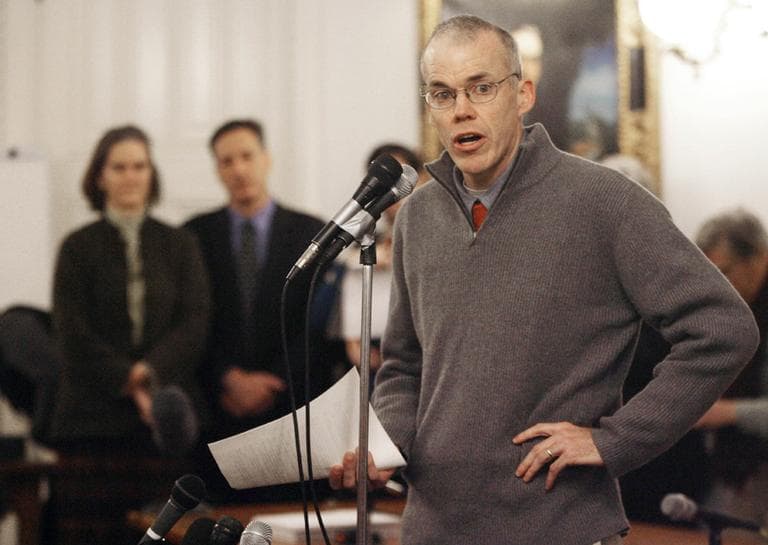Advertisement
Bill McKibben On Successful Political Activism
Resume
When the Obama administration rejected the Keystone XL Pipeline proposal in January, environmentalists hailed the decision as a major victory. For years environmentalists had opposed the massive project, which would have carried oil from the tar sands of Alberta across the U.S. all the way to the Gulf Coast.

Opponents of the pipeline were up against powerful interests, including the Canadian company TransCanada, U.S. gas and oil industries and the U.S. Chamber of Commerce.
Among those who led the movement to block the pipeline project is Vermont based journalist, author and now activist, Bill McKibben. McKibben is the author of "The End of Nature" and a scholar in residence at Middlebury College in Vermont.
McKibben was among the 1,200 protesters arrested outside the White House last summer. In this era of the Occupy Movement, with its mix of agendas and goals, we wanted to ask McKibben about leading focused, successful political activism.
Guest:
- Bill McKibben, author, "The End of Nature," scholar in residence, Middlebury College
More:
This program aired on February 6, 2012.